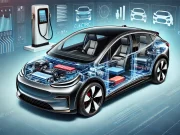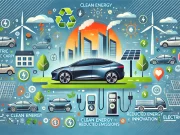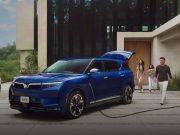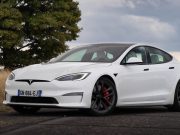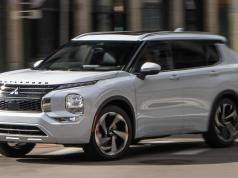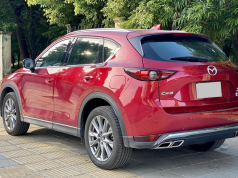The Kia Sportage is a popular SUV choice among drivers due to its modern design, robust performance, and variety of engine options. As an expert living and working across Southeast Asia, I, Worry the Frog, have gathered extensive experience with vehicles, particularly in the dynamic automotive markets of this region. This article aims to help you decide whether to buy a new or used Kia Sportage and choose between a gas or diesel engine.
Should You Buy a New or Used Kia Sportage?
Buying a New Kia Sportage:
Advantages:
- Manufacturer’s Warranty: One of the significant benefits of purchasing a new Kia Sportage is the comprehensive warranty that comes with it. This warranty provides peace of mind, covering repairs and maintenance for several years, ensuring the car remains in excellent condition.
- Latest Technology and Features: New cars come equipped with the latest technology and features, enhancing safety, comfort, and convenience. Features such as advanced driver assistance systems, updated infotainment systems, and improved fuel efficiency make the driving experience more enjoyable and secure.
Disadvantages:
- Higher Initial Cost: The most notable drawback of buying a new car is the higher initial cost. New vehicles are more expensive than used ones, and this can be a significant investment.
- Depreciation: New cars depreciate quickly, especially in the first few years. This means the car will lose a considerable portion of its value once you drive it off the lot.
In my experience, buying a new car in Vietnam offers the advantage of knowing you are the first owner and that the vehicle has not been subjected to any previous misuse or accidents. This is particularly important in markets where the history of used cars can be unclear.
Buying a Used Kia Sportage:
Advantages:
- Lower Initial Cost: Purchasing a used Kia Sportage can be significantly cheaper than buying a new one. This lower initial cost makes it accessible to more buyers and can allow you to purchase a higher trim level or a more feature-rich model within your budget.
- Reduced Depreciation: Used cars have already undergone the steepest part of their depreciation curve. This means they retain their value better over time, making them a more economical choice in the long run.
Disadvantages:
- Risk of Condition: A used car may come with hidden issues if not thoroughly inspected before purchase. These issues could lead to higher maintenance and repair costs down the line.
- Higher Maintenance Costs: Older vehicles may require more frequent maintenance and repairs, particularly if they haven’t been well-maintained by previous owners.
In Southeast Asia, where the market for used cars is vast, it’s crucial to thoroughly check the vehicle’s history and condition. In my time here, I’ve learned that a well-maintained used car can be a fantastic value, but the key is due diligence.
Choosing Between Gas and Diesel Engines
Gas Engines:
Advantages:
- Quieter Operation: Gas engines tend to be quieter than diesel engines, making for a more pleasant driving experience. They also do not emit the same odor as diesel engines, which can be a consideration for those who are sensitive to smells.
- Ideal for City Driving: Gasoline engines are well-suited for city driving and occasional longer trips. They provide smooth acceleration and are typically more responsive at lower speeds.
- Durability: Naturally aspirated gas engines are known for their durability and require less maintenance compared to turbocharged engines.
Disadvantages:
- Higher Fuel Consumption: Gas engines generally consume more fuel than diesel engines, which can result in higher operating costs over time.
- Turbo Issues: Turbocharged gas engines can overheat more easily in stop-and-go traffic or while climbing steep inclines, which is something to consider if you frequently drive in such conditions.
During my years in Southeast Asia, I’ve found that gas engines are generally preferred for their smoother operation and lower maintenance requirements. They are particularly popular among urban drivers who do not need the additional torque that diesel engines provide.
Diesel Engines:
Advantages:
- Fuel Efficiency: Diesel engines are more fuel-efficient than their gasoline counterparts, making them a cost-effective option for those who drive long distances regularly.
- Robust Performance: Diesel engines provide better torque and acceleration, especially at lower RPMs, which is beneficial for highway driving and heavy loads.
Disadvantages:
- Noise and Odor: Diesel engines are noisier and emit a distinctive odor, which can be off-putting for some drivers.
- Maintenance Requirements: Diesel engines require high-quality fuel and more frequent maintenance to prevent issues like clogged injectors and emission control system failures.
- Higher Initial Cost: Diesel vehicles often come with a higher price tag compared to gas vehicles due to the additional cost of the engine and associated components.
From my perspective, diesel engines are ideal for those who frequently travel long distances or need a vehicle that can handle heavy loads. However, the noise and maintenance requirements can be a drawback for city dwellers or those who prefer a quieter ride.
Experience and Choosing the Right Kia Sportage Variant
2.0 Gas Engine:
This variant is suitable for those who primarily drive in the city and occasionally take longer trips. The naturally aspirated engine is durable and less prone to maintenance issues compared to turbocharged engines.
1.6 Turbo Gas Engine:
For drivers who enjoy a more spirited driving experience, the 1.6 turbo engine provides more power and better fuel efficiency than the 2.0 gas engine. This variant is equipped with AWD, making it a good choice for driving in rainy conditions or on steep inclines. However, it’s essential to monitor for potential overheating in heavy traffic or during intense use.
2.0 Diesel Engine:
The diesel variant is the best choice for those who frequently travel long distances. It offers excellent fuel economy and robust performance. However, the engine is noisier and emits more odor compared to gas engines. Ensure you use high-quality diesel to avoid engine issues.
Based on my extensive experience, I recommend the 2.0 diesel variant for those who prioritize fuel economy and long-distance travel. For city drivers, the 2.0 gas engine is a practical and reliable choice, while the 1.6 turbo variant suits those who seek performance and versatility.
Tips for Buying a Kia Sportage
When Buying New:
- Compare Prices: Shop around and compare prices at multiple dealerships to ensure you get the best deal. Prices can vary significantly, and it’s worth investing time to find the most competitive offer.
- Negotiate Add-Ons: Don’t hesitate to ask for additional perks such as insurance packages, extended warranties, or accessory upgrades. Dealerships often have some flexibility with these extras.
When Buying Used:
- Thorough Inspection: Conduct a thorough inspection of the vehicle’s condition, including its exterior, interior, and mechanical components. Look for signs of previous damage or repairs.
- Check Maintenance History: Request the vehicle’s full maintenance history to ensure it has been well-maintained. Regular servicing records are a good indicator of the car’s condition.
- Bring an Expert: If you’re not confident in your ability to assess the car, bring a mechanic or someone experienced with you to inspect the vehicle.
- Negotiate Price: Be prepared to negotiate the price based on the car’s condition and any potential repairs needed. Factor in these costs when considering your budget.
In my experience, negotiating with dealerships and private sellers in Vietnam can yield significant savings. Always be prepared to walk away if the deal doesn’t meet your expectations.
Conclusion
Deciding between a new or used Kia Sportage and choosing between a gas or diesel engine depends on your individual needs, driving conditions, and budget. By carefully evaluating these factors, you can make an informed decision that best suits your lifestyle.
When buying a new car, enjoy the benefits of the latest features and peace of mind with a manufacturer’s warranty. If you opt for a used vehicle, thorough inspections and diligent research can lead to finding a great deal. Choosing the right engine type, whether gas or diesel, depends on your driving habits and priorities.
I hope this guide has provided you with the necessary information to make an informed decision about purchasing a Kia Sportage. Safe travels and happy driving!
FAQs
1. Should I buy a new or used Kia Sportage?
- New: Offers the latest features, technology, and a manufacturer’s warranty, but comes with a higher initial cost and quicker depreciation.
- Used: More affordable upfront and retains value better over time, but requires thorough inspections and may have higher maintenance costs.
2. What are the advantages of a gas engine in the Kia Sportage?
- Gas engines are quieter, emit less odor, and are ideal for city driving. They are also generally more responsive at lower speeds and require less maintenance compared to turbocharged engines.
3. Why should I consider a diesel engine for my Kia Sportage?
- Diesel engines are more fuel-efficient and provide better torque and acceleration, especially on highways. They are ideal for long-distance travel and carrying heavy loads.
4. How can I ensure the used Kia Sportage I’m buying is in good condition?
- Conduct a thorough inspection of the vehicle, check its maintenance history, and bring a trusted mechanic or knowledgeable friend to help with the assessment.
5. What should I negotiate when buying a new Kia Sportage?
- Compare prices across dealerships, and negotiate for additional perks such as insurance packages, extended warranties, or accessory upgrades to get the best deal.

